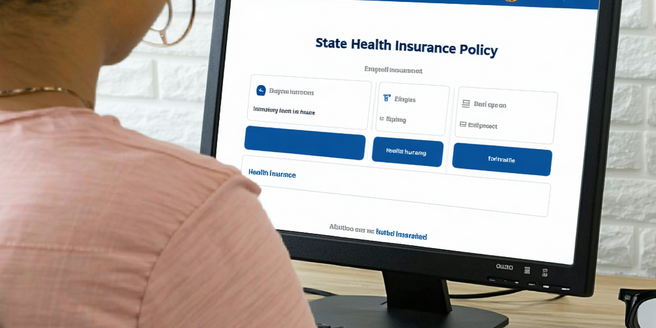Understanding Unemployment Health Insurance Penalties
Understanding the penalties associated with unemployment health insurance is crucial to avoid unexpected costs. Penalties may apply if you fail to maintain coverage or if discrepancies arise in your application. It is important to read all the terms and conditions carefully to ensure compliance. These penalties can vary based on your state’s specific insurance regulations, and not adhering to these guidelines can lead to financial burdens. Ensuring accuracy in reporting your employment status and any income received during unemployment is essential. Regularly updating your information with the insurance provider can also help in mitigating potential penalties. Being proactive in understanding your state’s policies and keeping abreast of any changes will help you manage your coverage effectively and avoid unnecessary penalties.
Eligibility Criteria for Unemployment Insurance Coverage
To be eligible for unemployment health insurance, you must meet specific criteria that can differ from state to state. Typically, you need to have been employed for a certain period and have earned a minimum amount during this time. Additionally, your employment situation should be categorized as involuntary unemployment to qualify for benefits. It’s essential to provide accurate employment history and personal information during the application process. Thoroughly researching the specific benefits offered can also provide clarity on what to expect. Understanding the particular eligibility requirements of your state can help streamline the application process and ensure you receive assistance when needed. Staying informed about any policy updates can also aid in maintaining your eligibility status.
Steps to Apply for Unemployment Health Insurance
Applying for unemployment health insurance involves several steps that must be carefully followed to ensure successful enrollment. First, gather all necessary documents, including proof of income and employment history. It is important to double-check that you have all required paperwork before proceeding. Next, visit your state’s health insurance portal or local office to begin your application. Make sure to familiarize yourself with the eligibility criteria before starting the process. During the application process, provide accurate information and submit any required documentation promptly. After submission, follow up with the insurance office to check the status of your application. If approved, review the terms and coverage details of your policy. Regular follow-ups and updates to your information are crucial to maintain your insurance benefits.
Common Mistakes Leading to Penalties
One common mistake that leads to penalties is failing to update your employment status or income changes on time. This can result in discrepancies that may trigger penalties. Double-checking your application for errors and providing accurate information initially can prevent unnecessary complications. Additionally, it is essential to maintain organized records of your financial activities to streamline the update process. Keeping a calendar with important insurance deadlines can be a helpful tool. Another mistake is missing deadlines for submitting required documents or updates, which could lead to temporary loss of coverage and related penalties. Being aware of policy changes and regularly communicating with your insurance provider can help prevent misunderstandings that may result in financial penalties.
Navigating Appeals When Facing Insurance Penalties
If faced with insurance penalties, understanding the appeals process can help in reversing or reducing these penalties. Begin by reviewing the penalty notice thoroughly to understand the reasons behind it. Gather any documents or evidence that support your case, such as proof of status updates provided on time. It’s often helpful to make a list of key points you want to address during your appeal. Contact your insurance provider to discuss your penalty and initiate the appeal process. Most insurance agencies have a specific timeframe within which appeals must be filed, so ensure you adhere to these deadlines. Clearly state your case and provide all necessary documentation during the appeal. Remaining persistent and informed throughout the process increases the chances of a successful appeal.



